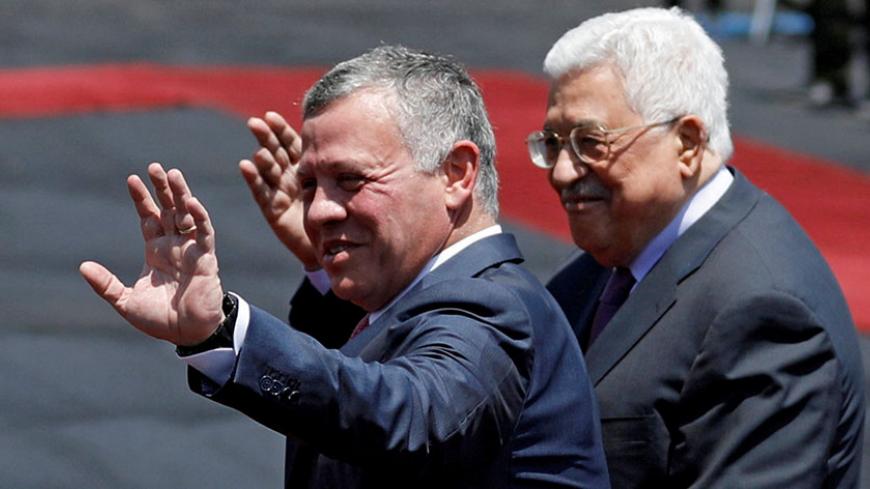Jordanian King Abdullah’s Aug. 7 visit to Ramallah, his first in five years, was symbolically important for Palestinian President Mahmoud Abbas and was also intended to send signals to a number of other parties. Abdullah flew by helicopter from Amman to Abbas’ headquarters in the wake of two incidents that have tested Jordan's tenuous relations with Prime Minister Benjamin Netanyahu's Israel: the crisis over Haram al-Sharif (to Jews, the Temple Mount) that erupted July 14 and the killing of two Jordanians in Amman on July 23 by an Israeli security guard at the Israeli Embassy, which remains closed.
Abdullah's two-hour visit to Ramallah was seen by some observers as a snub to Netanyahu and a morale booster for Abbas. Palestinian sources told Al-Monitor that having suspended security coordination with Israel on July 30 to protest unilateral security measures it took at Haram al-Sharif, the site of Al-Aqsa Mosque, Abbas preferred to stay in the occupied territories rather than request a permit from the Israelis to travel abroad in accordance with bilateral agreements. Some reports suggested that he was confined to his residence by Israel in retaliation for his decision. He was also reported to have checked in to a local hospital, suffering from exhaustion.



